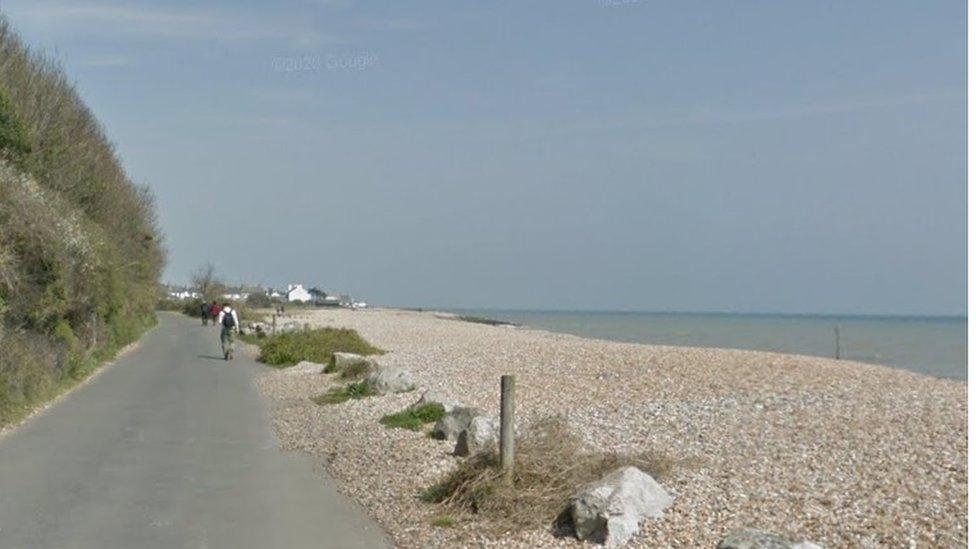Major spill incident training for coastal agencies
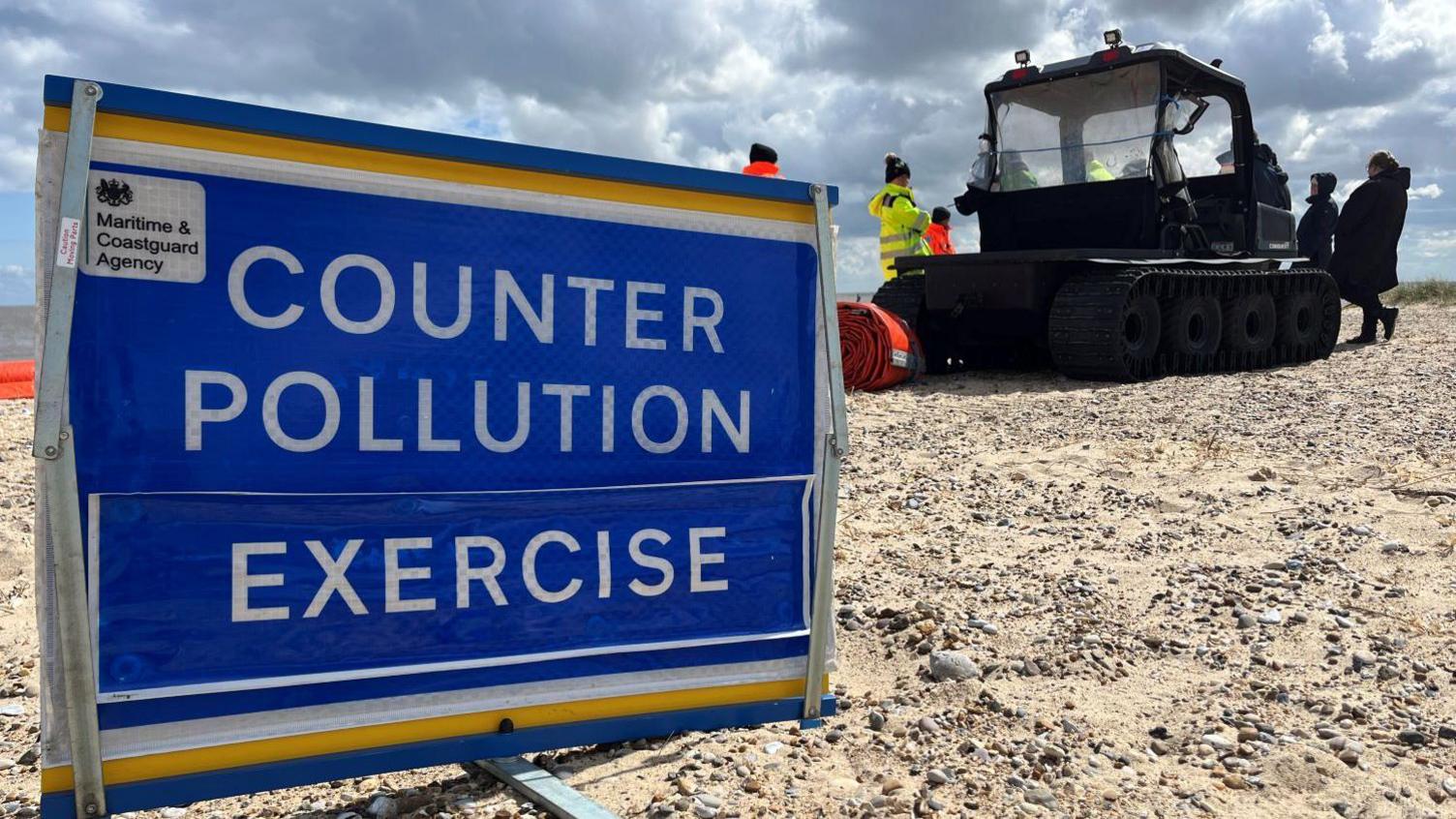
Agencies from around the coast received training on how to deal with major spillages
- Published
A Norfolk beach was turned into a practical classroom for different agencies to learn how to prepare for oil and chemical spillages.
The training, run by the Maritime and Coastguard Agency (MCA) brought together the Broads Authority, the Environment Agency and port workers to learn how to deal with a potential major incident.
The MCA said the aim was to help authorities minimise damage.
JJ Potter from the Norfolk Resilience Forum said: "The difference this training could make is paramount in terms of reacting to any potential chemical spill."
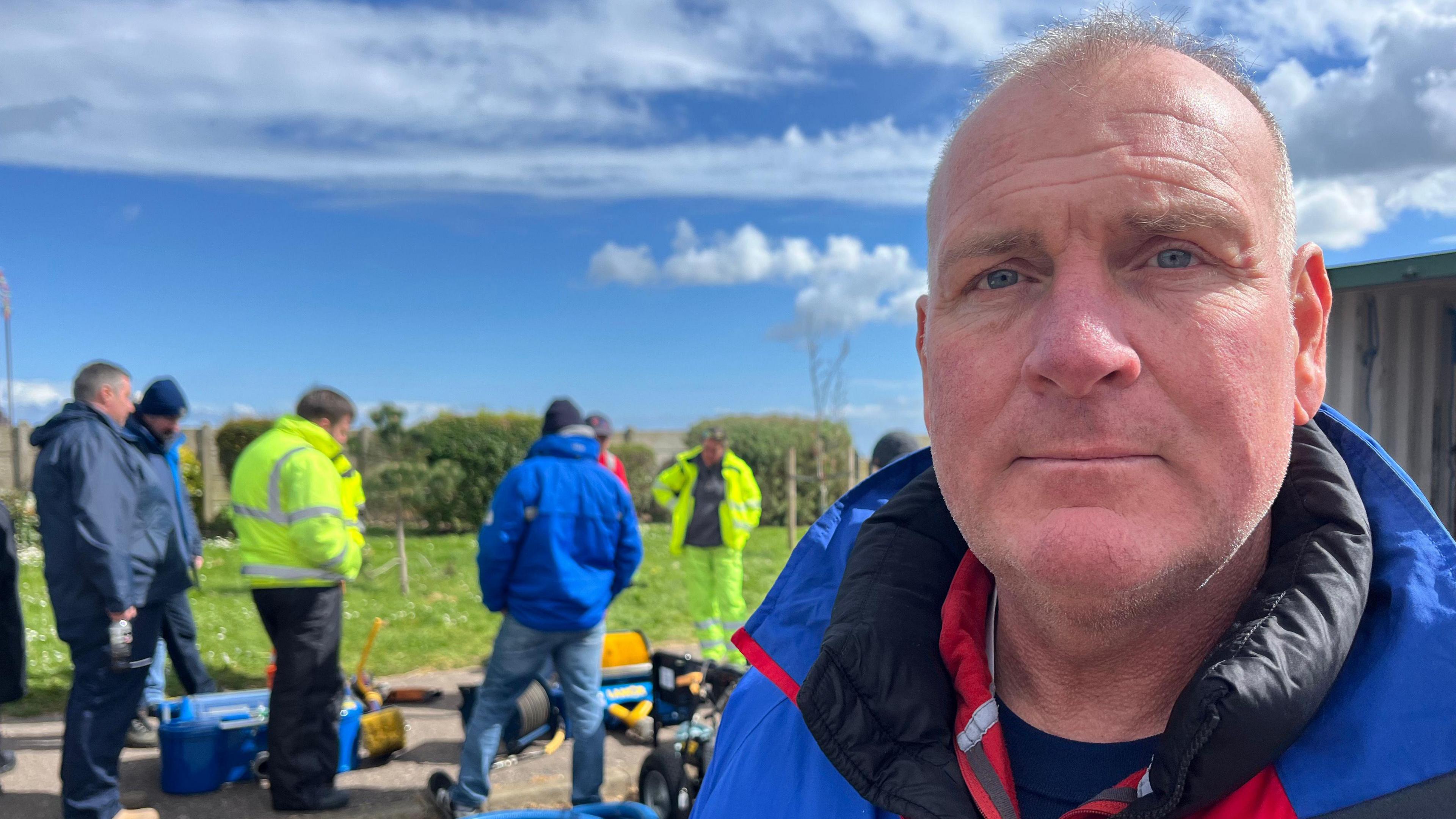
JJ Potter said the training would help them prepare using methods that tackle coastal pollution "quickly" while minimising harm to the environment
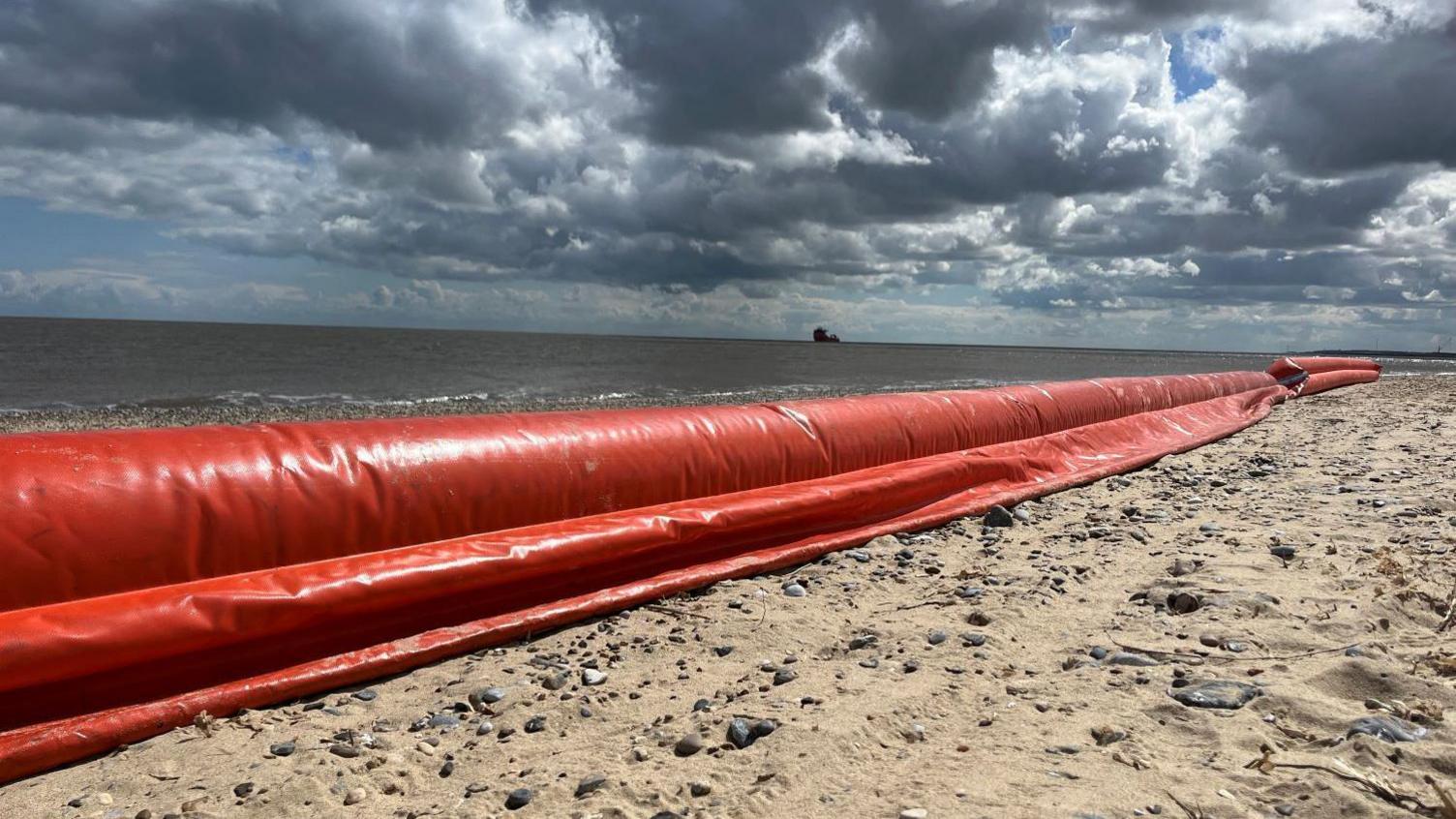
Agencies used a variety of equipment to learn how to deal with an oil or chemical spill
Neil Chapman, from the MCA, said "a rapid response is really key".
"A major incident will have a massive impact on the shoreline, on the ecology, as well as businesses who rely on this area for tourism... being able to respond quickly is really important.
"The longer a response takes, the more area will be impacted as the oil won't just sit here... it's going to move as the tides and the currents take it and the impact can increase the longer it takes to respond."
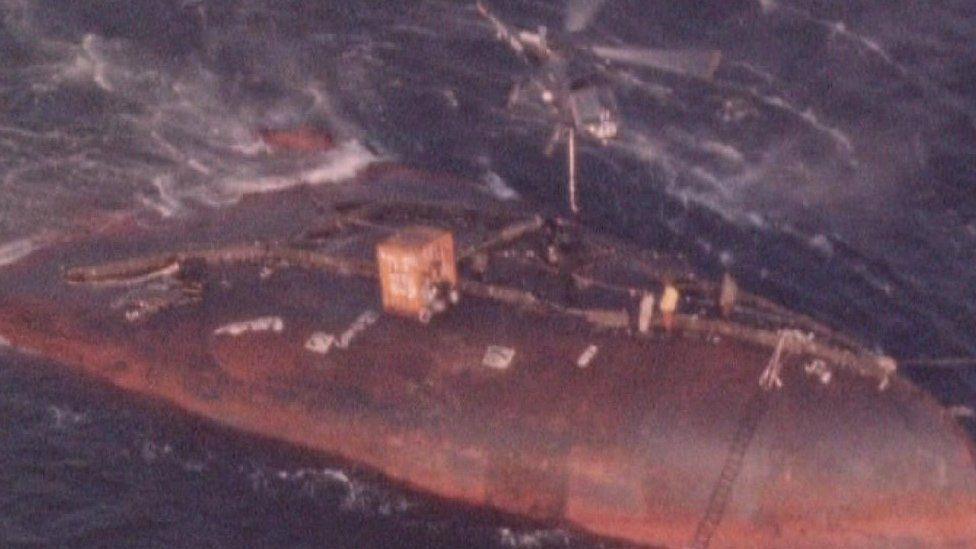
Oil and residue was discovered on Gorleston beach in 2016 after the Eleni V sank off the Norfolk coast
In 1978 the Eleni V sank off the coast of Norfolk after it was blown up by the army.
The tanker lost more than 5,000 tonnes of fuel with oil and residue found nearly four decades later on Gorleston beach in 2016.
Mr Potter said: "I would like to think that things have developed since the mid-seventies when that incident happened... this training that we're doing today will give us that forward leaning edge in tackling coastal pollution quickly and efficiently without causing harm to the environment or minimising harm."
Follow East of England news on Facebook, external, Instagram, external and X, external. Got a story? Email eastofenglandnews@bbc.co.uk, external or WhatsApp us on 0800 169 1830
Related topics
- Published3 January 2016
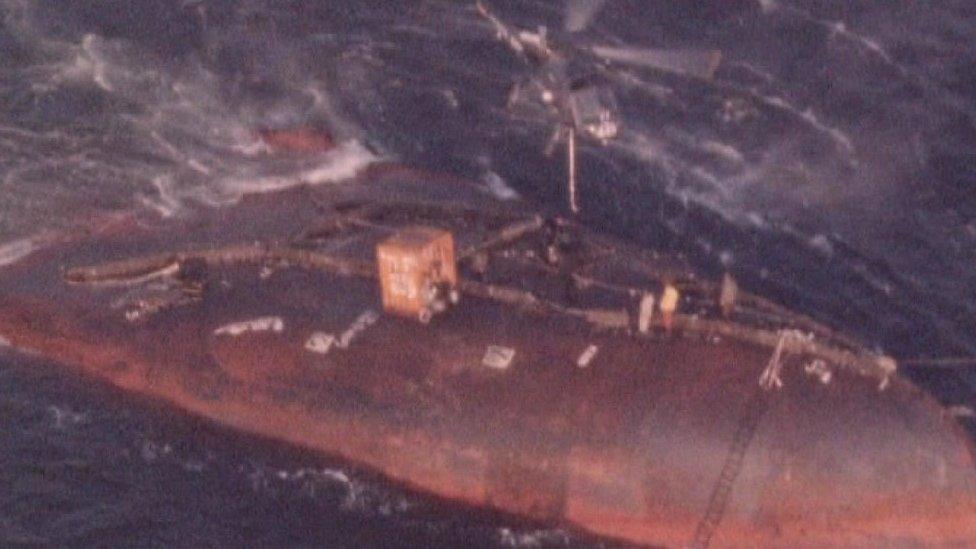
- Published4 January 2016
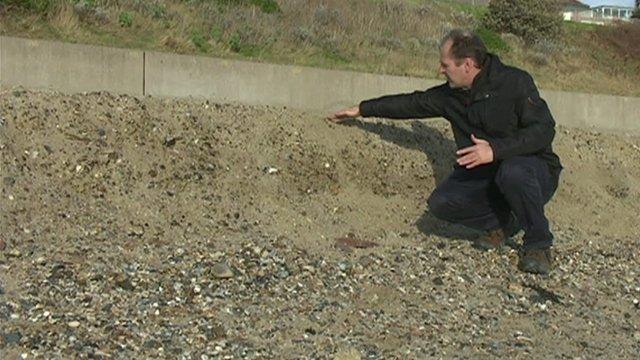
- Published7 January 2021
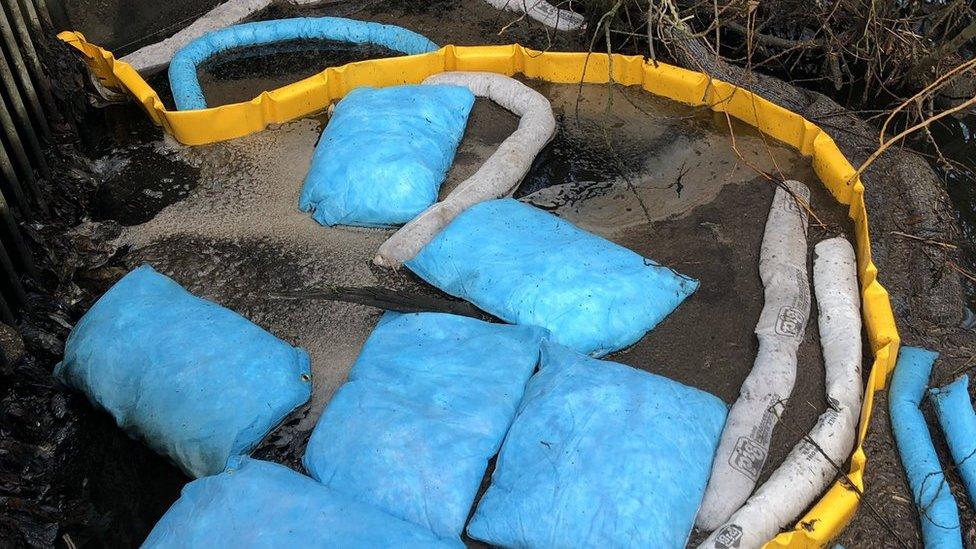
- Published10 March 2024
